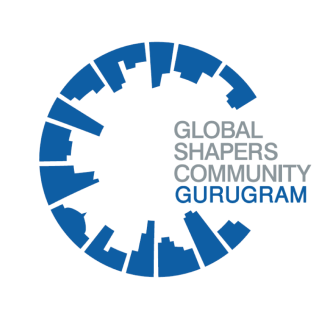Journey from Seed to Scale
Details
The journey to become a successful entrepreneur is filled with multiple challenges and hurdles. When the entrepreneur in question is a woman, a few additional hurdles pop up — unconscious biases, social conditioning, juggling home responsibilities and outright sexism. In a patriarchal culture like ours, labour participation of women in the workforce continues to drop. Yet, every passing day more and more Indian women are taking up the challenges of entrepreneurship.
At Global Shapers Gurugram’s Journey From Seed to Scale event held on December 8 at The Quorum, several women who had embarked on this journey came together for an afternoon of discussion with other like-minded women.
The panel included Annu Talreja, the Founder and CEO of real estate startup Oxford Caps; Shweta Singh, an investor at SRI Capital; and Arnab Kumar Program Director at policy think tank NITI Aayog. It was moderated by Priya Prakash, Founding Curator of Global Shapers Gurugram Hub and Founder-CEO of health startup HealthSetGo.
The discussion involved the panelists sharing their personal journey as well as practical tips for the attendees. Towards the end, there was a Question and Answer Round where the ~35 women entrepreneurs present had the chance to get their queries directly addressed by the panelists.
Key advice for women entrepreneurs
If you’re a VC looking at two equally capable candidates and you have to choose, there are times where you’d probably choose the man because men ask for less exceptions. Why do women ask for exceptions? Because our society lacks the infrastructure (child care, etc.) that is needed for women to be able to participate in the workforce. In such a situation, it is your (the woman entrepreneurs) job to be more proactive to understand what these concerns are and address them. You can use stories of resilience from your personal life to demonstrate your resolve. How you craft that narrative is up to you.
Here is another influencer talking about the same thing.
Insights from the panel discussion on entrepreneurship

- Funding: Before going for funding, it is important to ask if you need to go for funding. While investors can provide extra capital, you need to be clear about the path that you’re taking. Don’t raise funds until you absolutely need it. Once you get investors, you become answerable to them.
- Investors: While approaching investors, it’s important to talk about the “why” of your business. When you talk about your motives behind starting the business and where you’re planning to take it, it creates excitement in the investor to know more. The first meeting should be about showing the investor a teaser of what’s about to come.
- Education: Where you graduated from is important but not for the reasons you might think. Most investors don’t really care about the founder’s education per se. But it gives investors an idea about the person’s network. One of the key things that investors look for is- can there be a talent magnet. That doesn’t have to come from just the Ivy League or IIT/IIMs. It can be any college or past workplaces.
- Technology: Technology is the way to the future. While there are investors who invest in non-tech startups, the best bet is to test your business model offline and then take it online. Technology makes business more scalable. If you’re not from a tech background, it’s important to invest in a trusted advisor for your tech-related concerns. The understanding gap that may occur as a result of not having technical know-how may cost you.
- Social Impact: In a country like India, the social impact of your business needs to be thought about. Most of the problems that are being solved in countries that are doing well, most of those problems are necessary business problems. It is very evident that solving problems for India, for 700–800 million people who lack access to basic necessities of life , the solution has to be exponential, it can’t be linear. It has to be built trying to understand what India actually needs. Combination of profitability and impact is something that is truly required. Access to right product at an affordable price and at the right time is needed.
- Ecosystem Enablers: NITI Aayog’s Women Entrepreneurship Platform (WEP) provides women entrepreneurs with a space to discuss their queries and connect with mentors. More than fifteen thousand women are registered on the platform. WEP has also tied up with investors who have committed to investing in women-led startups. Pitching events for women-led startups are organised.
See detailed video coverage of the discussion here.


